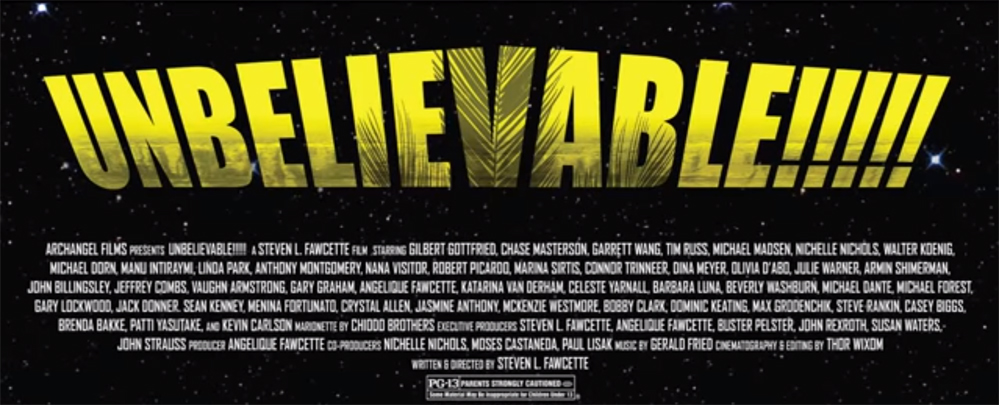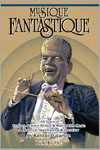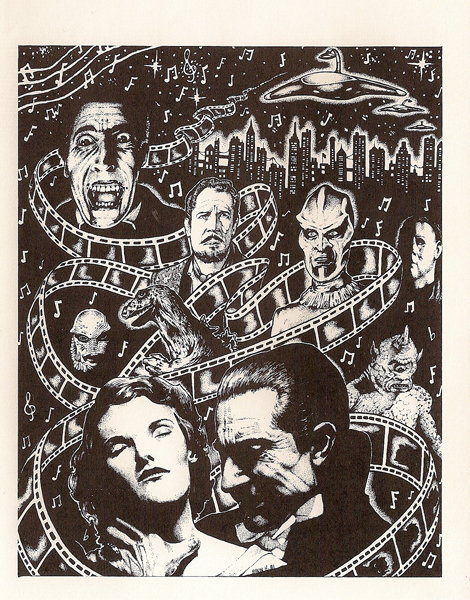Article & Photos by Jonathan David Dixon
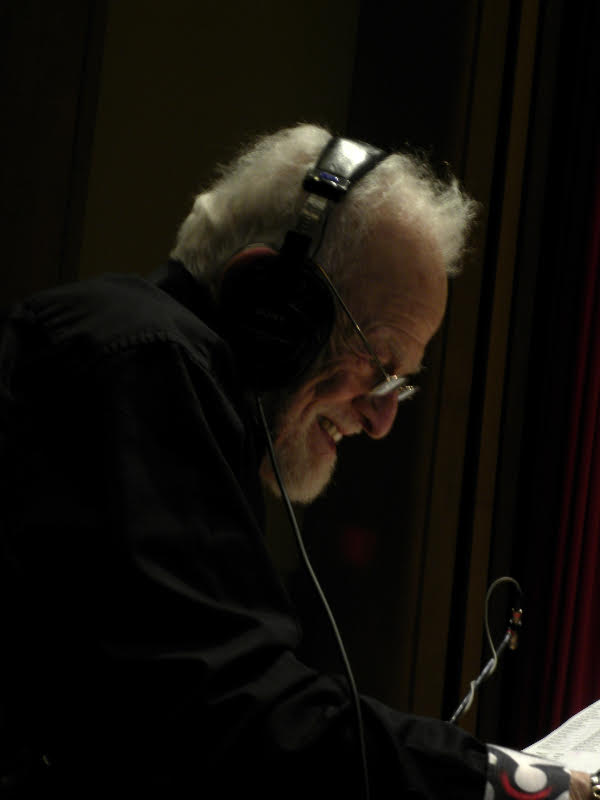
Veteran film and TV composer Gerald Fried, best known for scoring Stanley Kubrick’s early films of the 1950s such as THE KILLING and PATH OF GLORY, the television mini-series ROOTS, and episodes of such classic shows as THE MAN FROM U.N.C.L.E., GILLIGAN’S ISLAND and STAR TREK, was coaxed out of retirement – for the second time – to score a new film that is an affectionate parody of both STAR TREK and the cheesy science fiction B-movies of the 1950s.
The film is called UNBELIEVABLE!!!!! and its cast is made up of many actors who have appeared on the various STAR TREK series, going back to The Original Series. That is why the producers approached Gerry, in order to extend that connection into the music as well. After years in development, it is set to premiere in Hollywood on September 7th.
Before going on, I want to say emphatically that I’m not connected with the film, or in any position to speak about it, or the score recording, in any official capacity, and I don’t want to presume to speak for the producers. What I’m writing here are strictly my personal thoughts and impressions as, first, a fan of Gerald Fried The Famous Composer, and second (I’m happy to say), a friend of Gerry Fried.
Up until around 2005 I was aware of Gerry’s name in connection to certain things, being a fan of film music in general, with a special interest in the TV composers of the late 1950’s/early 1960’s. I probably mostly knew his name from STAR TREK and ROOTS (the theme of which I remember hearing every night when it originally aired). I’m sure I must have seen his name on GILLIGAN’S ISLAND and other shows, watching them in syndication growing up.
Around 2005 I learned to my excitement that Gerry actually lives in my town, so I made a concerted effort to look into his music more as I began to see him around town and say hello in passing in connection with people we both knew. I remember one special anecdote: I was in the ticket booth at the theater company with which I’m an actor when Gerry came to pick up his ticket. By coincidence I had just been listening to his 1958 “exotica” album Orienta on the way to the theater. I told him that and said, “Do you know what about that music says Gerald Fried to me?” He said “What?” – probably expecting some highly theoretical, intellectual explanation. I said, “It has lots of percussion and a banjo!” He burst out laughing and said, “You’ve got me pegged!”
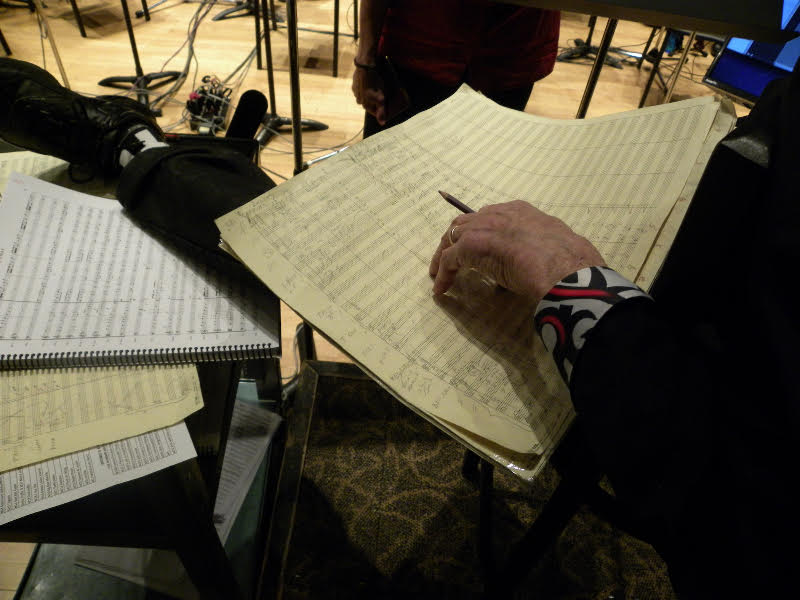
I really got to know Gerry in 2008, mostly through theater connections, and we became friends, so I started to get hold of as many CDs and old records of his music as I could find – and was especially helped in building my collection by the “Private Issue” CDs that David Fuller has produced to restore and preserve Gerry’s music. So, by the time of the recording for UNBELIEVABLE!!!! I was very versed in Gerry’s music.
Although I play various instruments and write songs and music myself, I’m not a trained musician, so I’ve always been fascinated by the discipline and training of what I call “real” composers and players. And as an actor and illustrator, I’ve always especially loved film music – the way stories and images and music combine.
I have seen many feature extras on DVDs showing film scoring sessions, but they are always frustrating to me because they are so short! They give just a taste of what it is like to actually be at one, but no more. So it’s always been a dream of mine to actually attend a scoring session and experience what it is like to be present while the music is played live, to hear all the interaction with the director and producer in the booth, and the musicians on the floor, and to see how they synchronize the music with the picture and record individual cues.
Once I knew Gerry was doing this film I shamelessly hinted that if he needed any kind of assistance I would be happy to attend. Fortunately, knowing of my interest, he was pleased to have me there. Mainly, I just wanted to be there as a quiet gofer, to help Gerry in any way I could, so he could keep his energy focused solely on the music and the recording and not have to worry about anything else. I ran around the building and found a red pencil when he forgot his, I got him coffee, and I took the score pages as he finished each cue so he didn’t have to worry about setting them somewhere and keeping them in order …
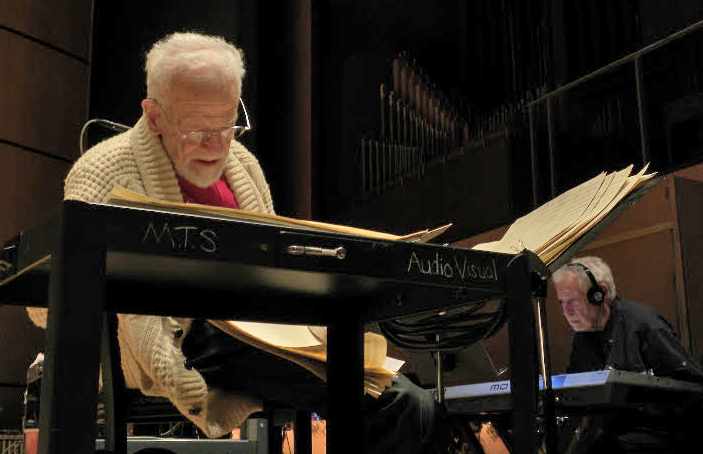
I’ve seen Gerry in musical contexts, playing with local orchestras and ensembles, and I’d even done the narration for a live performance of one of his concert pieces, The Chess Game (based on Lewis Carroll’s Through The Looking-Glass), but I’ve never actually seen him at work in a film-music context. So watching him doing that, it just struck me what a real professional he is. He knows this whole process inside-out. He just clicked right into it and seemed completely at ease and in his element.
At times I could tell he was thrilled about it, though. Five or six years ago I introduced Gerry to my filmmaker friend from the U.K., Peter Kershaw. Gerry and Peter hit it off and Gerry agreed to come out of “retirement” and compose the music for Peter’s short film 20 WAYS. That went so well that Peter asked Gerry to write the music for another of his shorts and I remember Gerry saying afterward that he was pleased to find that, as he put it, “Yeah, I’ve still got it!” – and that doing all the timings and technical aspects of film composing came back “like riding a bike.” So doing this full score just seemed a natural progression from that.
The recording for UNBELIEVABLE!!!! was done in Keller Auditorium, a full concert auditorium at the University of New Mexico in Albuquerque on May . Gerry conducted and I sat five feet away from him, to his right, with the orchestra playing ten feet in front of me. There was a talkback system with which he could talk back and forth to the engineers and music editor in the recording booth, which was set up in a storage/backstage area behind the stage.
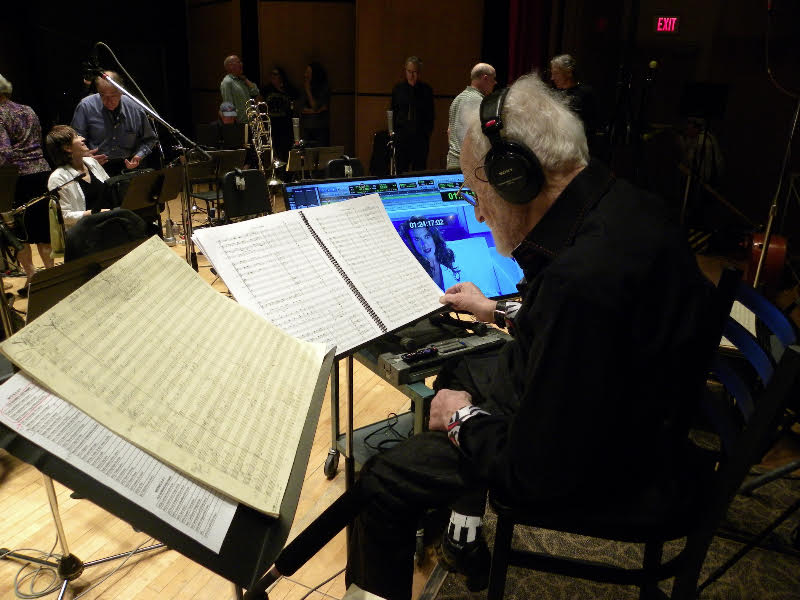
It was so nice to see how immediately masterful he was at the podium, building a rapport with the orchestra with his sense of humor (lots of corny jokes and self-deprecating humor) and, most of all, his patience and general kindness. Of course everyone was a bit tense at the beginning, but very quickly you could feel the players become devoted to him. They knew he was on their side. (And of course Gerry regularly plays in orchestras, so he knows what it’s like to be on their side.) That allowed me to observe something fascinating in real time: Gerry molding the orchestra on the spot.
That came out in several cues. In one, Gerry had specified a “jazzy feel” from the drummer, but on the first rehearsal it came out a little too jazzy. He asked for less swing, something more on the beat … and the brilliant drummer immediately did something more like a jazz march, and suddenly the whole feel changed. The orchestra clicked right into what the drummer was doing. All the players were just as flexible. After that one I commented, “I’ve just had a MAN FROM U.N.C.L.E. flashback,” and Gerry laughed and said, “The bongos, right?”
Even more fascinating was watching Gerry re-orchestrate a cue on the spot: After the first rehearsal he wasn’t satisfied with the sound as he had arranged it, so he just started telling the players to do different things. He had the bass player move from electric to stand-up, he asked the drummer for “something with more a Chinese feel,” and he asked the string players not to play after all. It was in those moments that I was really struck by the fast-thinking and flexibility that is required of a film composer, and how Gerry was so adept in that role.
The orchestra was excellent and very fast. Gerry selected some of the players – people he knows – and others were contracted by someone else, but most didn’t have experience playing with headphones and a click-track, but they mastered it very quickly. They were sight-reading the music and by the second day they had become such a unit that they only had to rehearse each cue once or twice, and then have it recorded in one or two takes.
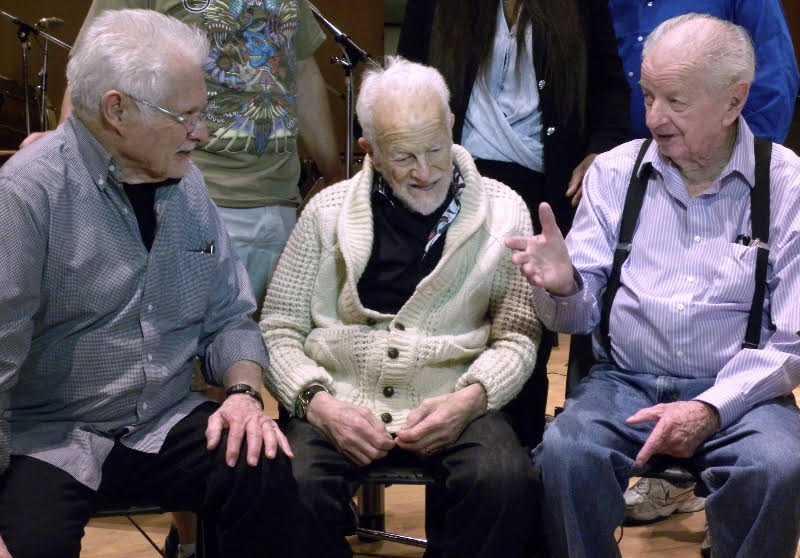
There were two days of recording with the full orchestra, and a third day set for any necessary individual overdubbed parts.
The music was, fittingly, very much in Gerry’s STAR TREK vein. Luckily, the orchestra was bigger than he was allowed on the TV series (29 pieces, I was told) so it had the fuller, lusher sound it deserved. There were several moments in which the music evokes familiar STAR TREK cues, using them in a parodist vein. Whether or how those cues end up being used in the final film, to hear those familiar notes played live right in front of me was actually an emotional experience.
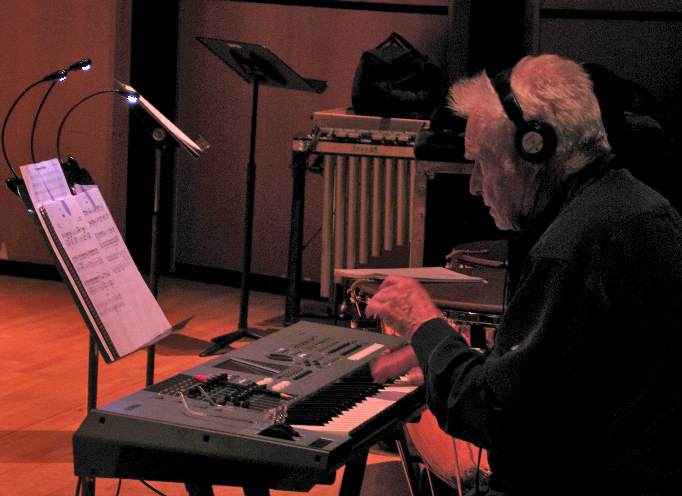
For example, the orchestra started sight-reading one cue and within a few notes we all knew it was the famous STAR TREK “fight music” that Gerry had composed – that music we hear parodied all over the place. But to hear it played live a few feet in front of me – with the composer a few feet to the side of me at the podium – I actually got a bit choked up. Afterward I talked to one of the trombone players, Phil Arnold, who is also devoted STAR TREK fan, and he told me that as he was playing and realized what famous trombone growls were coming out of his instrument, he also felt a catch in his throat. As for unusual instruments, Academy Award-winning composer, arranger and pianist Dave Grusin was there to help Gerry out, and was sitting at the helm of a very versatile keyboard. Sometimes Gerry would just suggest some vague kind of sound – “spacy” or “scary” – and Dave would almost immediately come up with the perfect sound, and often several good options.
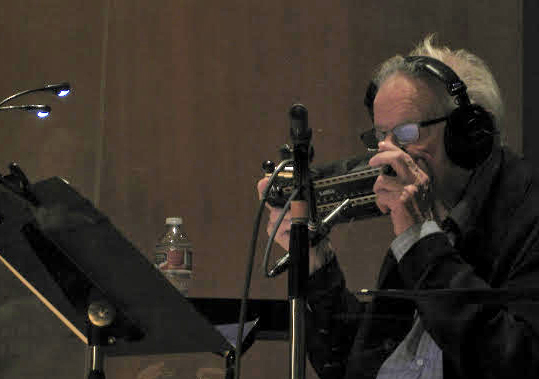
Another veteran of STAR TREK music brought in to perform on the recording session was, the legendary harmonica player Tommy Morgan, who is renowned for more than 60 years of performances on film (including Gerry’s score for ROOTS) and television, including memorable genre works such as THE TWILIGHT ZONE (where he also composed and performed solo harmonica scores for three memorable episodes), THE SIMPSONS, and, of course, STAR TREK. I was thrilled to meet him, being a fan of his for many years. I’d brought along two old harmonicas that I had inherited these from my grandfathers to show him; one of them must be over 100 years old, the other close to that, and he was amazed that they still played well. He actually played them – which made me keel over – and then it occurred to me to have him sign them, in the way people have guitar heroes sign their guitars!
The film’s director and producer, Steve and Angelique Fawcette, worked closely with Gerry in the whole process, scheduling around what would work best for him and taking his age into account. And from what I saw at the session they did exactly what producers and directors should do: kept a low profile and created a calm environment in which Gerry could get the work done. I’m sure loads of work and stress went into making the whole thing seem as effortless and flowing as it did, but that’s the sign of good organization (continued below).
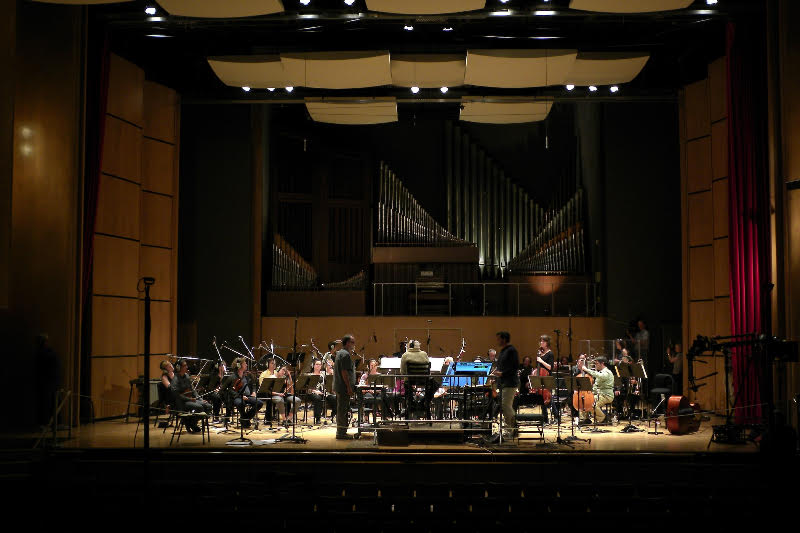
When all is said and done, what struck me about this experience was, first, the obvious: “Hey, this really sounds like Gerald Fried movie music!” And then the realization followed: “And it’s new Gerald Fried movie music! And I’m one of the first people to hear it!” But the best part was then realizing that it stands up to anything he has done in the past. I know it took him longer to compose it than it may have in the past, and may have taken more out of him, but there has been no lessening of quality whatsoever. It’s Gerald Fried at his best.
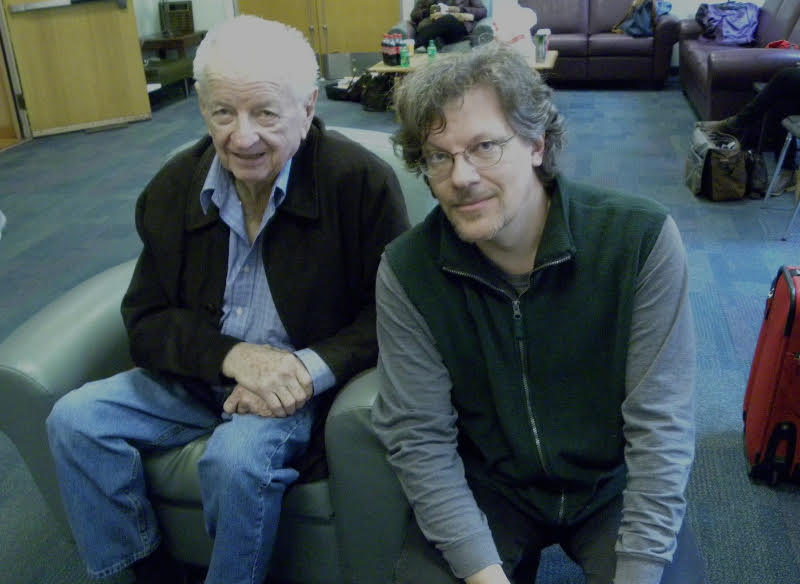
In addition to his work as an actor in film and theater, Jonathan David Dixon is also a published artist and illustrator with a frequent association with the works of Lewis Carroll; a composer who has written songs and music for a number of plays and is working on recording his own songs with his band, the Other Selves; a sometime writer of short plays and film scripts; and a licensed counselor who has worked in the domestic violence field, with a special interest in matters related to creativity and spirituality.
For more about the movie, click here

